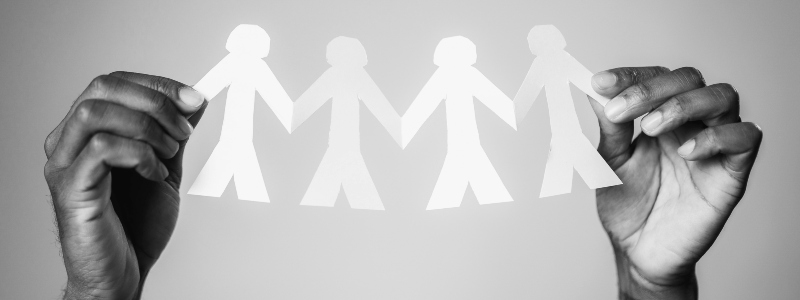Christmas can be an emotionally challenging and difficult time for many of us. There is such expectation on how Christmas ‘should’ be. Yet like the weather fails to deliver on the ‘winter wonderland’ scenes on the TV adverts, for many of us, our family experience often falls far short of the loving idyllic family reunions depicted in those same snowy adverts.
What makes Christmas particularly difficult?
Aside from the expectations we put upon ourselves, it has all the classic ingredients of being either an explosive disappointment or a damp squib.
Family of choice versus family of origin
Christmas is often a time when we get together with family members we would only ever see on other festive days or, as the saying goes, weddings and funerals. Often, we have little close relationship with these family members. Yet somehow we expect to feel a close bond with them on this day in particular.
Many families are now what is referred to as blended families. Nowadays, it is normal to grow up with step-parents, step-siblings and half-brothers and sisters. While this does not necessarily lead to conflict, it can make the delicate balance of Christmas Day complicated and fractious. Compromise is often the order of the day.
Christmas is often a difficult time thanks to the ghost of Christmas past. Many relationships break down over Christmas and can leave us with tainted childhood memories of parental feuds and the accompanying grief. This then plays out in the present, potentially contributing to conflict with family members – the trauma repeats.
And then there is the one extra ingredient that can make things seem so much worse than they are; the explosive charge in many Christmases – alcohol. Consuming alcohol in and around Christmas is normalised and we can often feel under pressure to ‘join in’. Many of us also use alcohol as a way of coping with the day, the family members who descend upon us, the expectations, unhealed rifts and so on. However, when it comes to managing emotions and conflict, alcohol has never been a solution.
Five top tips to surviving Christmas Day
- Support through relationship
If you are in a relationship, talk to your partner. Explain to them that you may find the day hard and agree how you will ask for support when needed, or how you will support each other. Examples may be anything from starting the day together and connecting through to holding each other in mind. You can demonstrate this through small reassuring gestures such as visually checking in with one another.
- Reality Testing
Christmas is only a day. The expectations we feel in relation to it are largely in our own head. By pausing and accepting that there is no such thing as a ‘fairy-tale Christmas’ (except perhaps for some fortunate children) we can gain a little space to see it for what it is.
- The past is not the present
Memories of past Christmases, while present, need not dominate our experience in the here and now. Accept that it is a difficult time for you, know that it is for many others, be compassionate with the feelings that the season evokes and remember it is only a day. Sometimes we feel strong emotions on particular days that are simply reminders of the past – echoes – and we have the power to create something different.
- Alcohol makes things worse
Nobody is telling you not to drink on Christmas Day. However, if it is a day that evokes sadness or anxiety, alcohol will not improve these feelings for long. Once it wears off, they will be back with a vengeance and accompanied by a hangover. The opposite of using alcohol to self-soothe is to soothe through relationship. Even if you are not in a relationship with another, you are in a relationship with yourself and can hold yourself in mind.
- Hold Yourself in Mind
One of the traps people often fall into is that they imagine that they have no choices on the day; they simply have to do what is expected. Doing what is expected is a choice in itself! Even if you do feel that there is little on offer for you during the day, a change of perspective and holding in mind why you are choosing to make these choices can be helpful. For example, rather than framing it as “I have to go see X person, or Y will be disappointed”, you can rethink it as “I choose to see X person as I want to give that as a gift to Y’.
Even if the day feels full and focused on others, it is always possible to take a few minutes out to calm yourself. You can breathe, come back to the here and now and remind yourself – Christmas is only a day. See my blog on avoiding panic attacks for a simple but effective practice to calm yourself and return to the here and now.
Mark Vahrmeyer is a UKCP-registered psychotherapist working in private practice in Hove and Lewes, East Sussex. He is trained in relational psychotherapy and uses an integrative approach of psychodynamic, attachment and body psychotherapy to facilitate change with clients.
Further reading
Can couples counselling fix a relationship?









